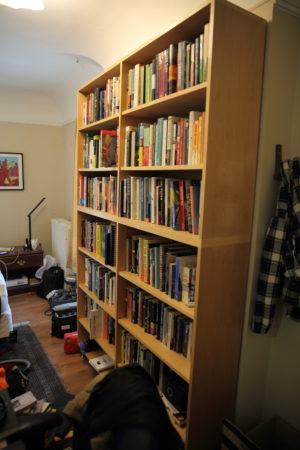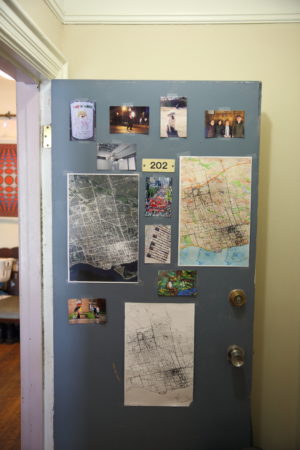Author: Milan
awaiting re-housing
the doctor’s office
We are sliding toward geoengineering
Geoengineering is a very dangerous and ethically questionable response to climate change, but it feels increasingly inevitable.
Governments are simply not willing to do what is necessary to avoid catastrophic climate change, which is unsurprising because voters refuse to elect anyone who even gestures at the scale of change required.
Furthermore, there is no evidence that worsening climatic conditions make people more willing to support fossil fuel abolition. Instead, it seems to drive people toward false solutions or just inchoate anger. Even the ‘serious’ governments are still using taxpayer money to subsidize brand-new fossil fuel production. Everyone has a story about why their industry is the one that doesn’t need to shut down.
It is hard to believe that when climate disruption continues to get worse every year (with El Nino, people are predicting next year will be the hottest in history) the worst-hit places won’t start modifying the atmosphere to try to cancel it out — side-effects, impacts on others, and long-term risks be damned. We are a species that has always preferred monthly life-long $1500 injections with a mystery drug to be thinner, rather than changing our diets.
Related:
- Geoengineering: wise to have a fallback option
- Will technology save us?
- Geoengineering with lasers
- Ken Caldeira on geoengineering as contingency
- Ocean iron fertilization for geoengineering
- Who would control geoengineering?
- CBC documentary on geoengineering
- Geoengineering via rock weathering
- Open thread: shadow solutions to climate change
- Planting trees won’t solve climate change
Wildfires are doubling Canadian CO2 pollution this year
A popular argument among those who want Canada to ignore climate change and keep exploiting fossil fuels is: “But we have so many trees that our emissions must hardly matter! Maybe the world should pay us!”
The argument is deficient on several levels, not least because a tonne of carbon in a tree doesn’t negate a tonne of emissions from fossil fuel burning. The tree only holds the carbon while it is alive, whereas CO2 in the atmosphere will partly remain in the atmosphere for hundreds of thousands of years.
The argument also fails when our forests themselves become a cause of worsening climate change:
Hundreds of forest fires since early May have generated nearly 600m tonnes of CO2, equivalent to 88% of the country’s total greenhouse gas emissions from all sources in 2021, the Copernicus Atmosphere Monitoring Service (CAMS) reported.
More than half of that carbon pollution went up in smoke in June alone.
If you think Canada should get extra permission to pollute because of our forests (questionable) then we also need to be responsible when those forests become net carbon sources.
Related:
2023 mayoral by-election
Sometimes the student life of unstable and often-changing housing makes it hard to vote, but I was able to do so easily in today’s Toronto mayoral by-election using my student co-op short-term residency agreement and health card.
I was surprised a couple of weeks ago to see how closely my Vote Compass answers matched up to Olivia Chow, and I was happy to vote for her today and see her win tonight.
The results — left-leaning in the urban core, right-leaning in the suburbs — fit into a major and long-running electoral pattern. In the Toronto case particularly, I will confess to having little sympathy who are willing to let infrastructure and city services decay for the sake of low taxes. It is the dynamism of Toronto that attracts people to all those endless suburbs, and they are killing the golden goose by allowing the city to fall into decay for the sake of lower taxes. If you want ultra-low taxes and no services, go start a subsistence farm in a rural area. If you just want a giant rural-style house from which to drive your SUV to your job at the bank downtown, you need to pay taxes at a level that keeps the city going. You might feel like a capitalist superman who shouldn’t be weighed down by funding parasites, but all that money you’re making comes from the economic dynamism of a place where individual prosperity normally relies upon good underlying social conditions. Things have clearly been badly eroded by the psychological harm of the pandemic, and it will take investments in areas like social services to the unhoused and mental health supports to get Toronto back to where it was pre-2020.
It’s an open question how an ideological sandwich of municipal, provincial, and federal governments will work for Toronto, but at least we don’t have another low-tax ideologue as mayor.
A trend that apparently cannot be sustained
The timing of me getting pushed out of 611A Marlee Avenue seems to have been especially bad.
I have been room-hunting for months now, and what I have mostly seen has been individual rooms in shared apartments for around $1500 and up. That means paying more for a room than I ever have for a whole apartment, and so far none of the rooms I have seen have actually been desirable to live in.







